Getting a prosthetic is a big decision. But choosing the right clinic? That can be even bigger.
Because this isn’t just about getting a device. It’s about getting your life back—comfortably, safely, and with the right support.
Not all clinics are the same. Some offer great fittings but lack follow-up care. Others may seem perfect on paper but fall short when it comes to patient experience. And if you’re choosing for a loved one, the pressure to get it right feels even heavier.
That’s why we created this guide.
We’ve worked with thousands of users across India—from metro cities to small towns. We’ve seen what works, what doesn’t, and what makes a clinic truly dependable.
This article will walk you through ten key points to check before you choose a prosthetic clinic in your city. It’s not about judging clinics. It’s about helping you ask the right questions, spot red flags early, and make a decision you feel good about.
Let’s get started—one step at a time.
1. Clinical Experience and Proven Expertise
Why Experience Matters More Than Brochures
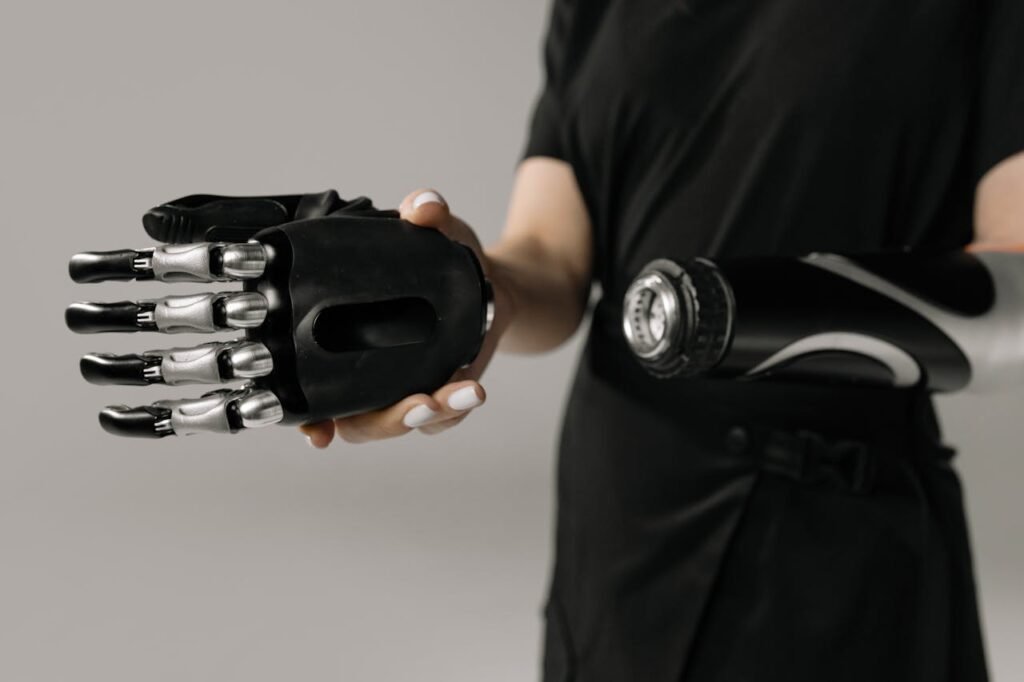
When it comes to prosthetics, no two cases are the same.
You want a clinic that has handled many different types of limb loss—upper limb, lower limb, partial, congenital, and traumatic. Experience brings perspective. It helps the team plan better, troubleshoot faster, and reduce trial-and-error during your fitting.
Ask how long the clinic has been operating. Ask how many successful fittings they’ve done in the last year. Not all experience is visible in ads—you’ll learn more by asking directly.
A clinic that has worked with varied users—from farmers and schoolchildren to working professionals—is more likely to understand your unique needs.
The Role of the Prosthetist
The prosthetist is the key person who will work on your socket, fitting, alignment, and adjustments. They should be certified, yes—but also compassionate, curious, and patient.
Ask if you’ll be assigned one prosthetist for the full journey. Having the same person track your progress makes the experience smoother and more personalised.
Look for someone who explains things in simple words, listens more than they speak, and is open to questions. These are signs of someone who’s committed to your long-term comfort.
2. In-Clinic Experience and User Comfort
First Impressions Tell You a Lot
The first time you walk into the clinic, pay attention. Is the space clean and welcoming? Do people greet you with care? Are there ramps or easy seating for users with mobility issues?
It doesn’t have to be a fancy building—but it should feel safe, accessible, and calm. These details show how much the clinic values real users over just appearances.
If it’s your first time visiting any prosthetic clinic, take a friend or family member along. They’ll notice things you might miss, like how long people wait or whether the staff is organized.
Privacy and Patience During Fittings
Fitting a prosthetic can be emotional. It involves trying on new things, moving in new ways, and sometimes being vulnerable. A good clinic gives you space to do all this with dignity.
Ask if they have private fitting rooms or dedicated times for fittings. Check how they handle children, elderly patients, or people recovering from trauma.
You’ll know you’re in the right place if the staff never rushes you, respects your pace, and encourages honest feedback—even if something feels off.
3. Range of Technology and Device Options
One Device Doesn’t Fit Everyone
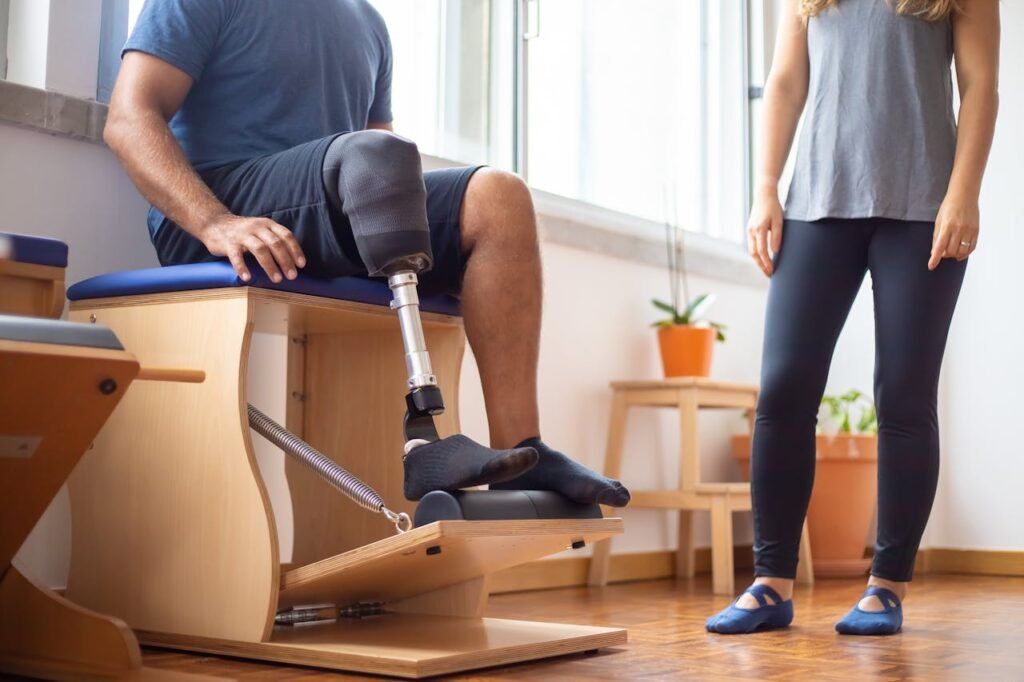
A clinic should offer more than one type of prosthetic.
This means they should have options for mechanical limbs, myoelectric hands, passive cosmetic limbs, and even advanced bionic solutions if needed. Not every user needs the most expensive device—but everyone needs the one that works best for them.
Be cautious if the clinic pushes one product too quickly. You should be offered choices—and guided based on your needs, not what’s in stock.
You might also ask whether they offer demo fittings. Trying out a device before committing to it gives you more confidence and better outcomes.
Integration With Your Lifestyle
The right prosthetic isn’t just about size or weight. It’s about how it fits your lifestyle.
If you work with tools, can the prosthetic grip a hammer or wrench? If you’re a student, can you write with it or use a laptop comfortably? A good clinic will ask these questions first—before ever measuring your arm.
They may even bring objects into the session and have you try them on the spot. That’s a sign they’re designing the solution around you—not the other way around.
4. Training and Rehab Support After Fitting
Getting the Prosthetic Is Only the First Step
A prosthetic device, no matter how advanced, won’t feel natural on day one. You’ll need time to learn how to use it, build strength, and train your brain to make it feel like part of you.
That’s why post-fitting training is critical.
A good clinic doesn’t just hand over your prosthetic and say “good luck.” It provides physical therapy, grip training, gait coaching, and goal-based practice—right after the fitting and in the weeks that follow.
Ask if the clinic has rehab specialists on-site. If not, check if they have tie-ups with physios or therapists nearby. The closer this support is, the better your results will be.
Hybrid and At-Home Guidance Options
If you can’t travel often, ask about tele-rehab. Many clinics now offer video-based training, app support, and home activity logs. This hybrid model helps you recover from home without missing expert input.
You may also want to check if the clinic offers training for caregivers. Often, they’re the ones helping you at home—and when they’re trained well, your progress becomes easier and faster.
5. Follow-Up Care and Repair Policy
Your Needs Don’t End After Fitting
A great prosthetic today may feel tight in six months. You may need socket adjustments, sensor recalibration, or grip upgrades over time. That’s normal.
What matters is how the clinic handles it.
Ask how they manage follow-ups. Are they scheduled in advance or only when there’s a problem? Can you reach out if something feels off, or are you expected to wait until your annual check?
You want a clinic that’s proactive, not passive.
Fast Repairs and City-Wise Turnaround
Repairs are part of life with any device. Batteries wear out. Wires loosen. A good clinic should have a clear repair policy, with timelines and support options.
Ask how long basic repairs take. In cities like Pune or Delhi, some clinics offer same-day fixes. Others may take 3–5 days depending on parts.
Also check if the clinic stocks spares or if they need to ship everything from a central location. Faster access to parts means less time without your prosthetic.
You can also ask about warranty coverage and what happens after it ends. Knowing these details upfront helps avoid stress later.
6. Emotional Support and Peer Guidance
You’re Not Just a Case File
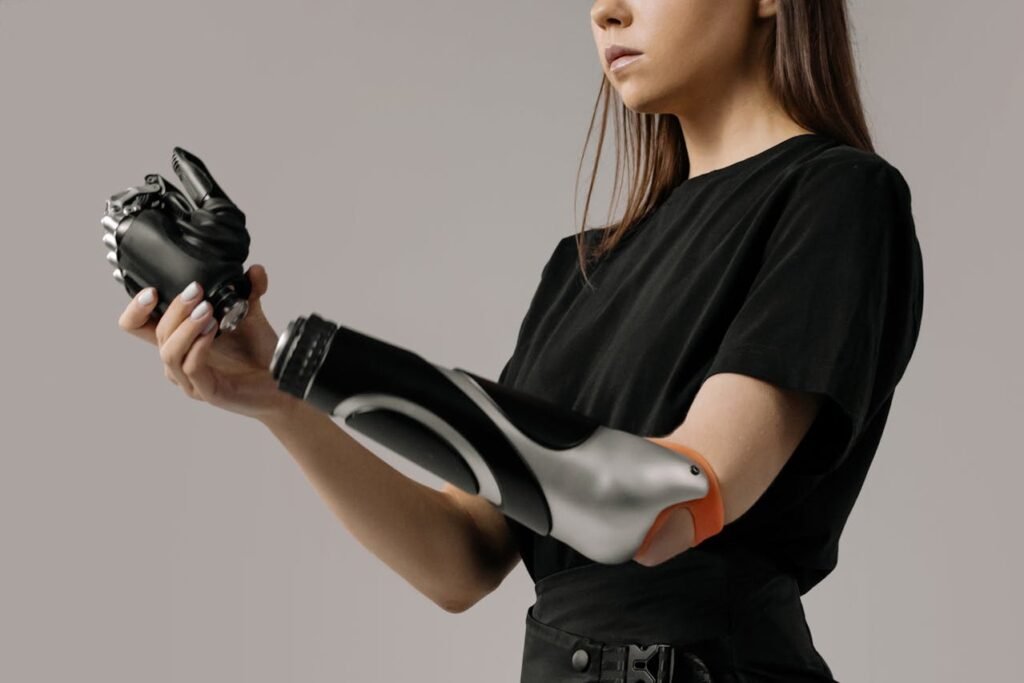
Getting a prosthetic is emotional. You’re dealing with change, identity, body image, and often fear of the unknown.
Look for clinics that recognize this.
Do they offer counselling support? Do they have someone on the team who listens—not just checks measurements? Even a short conversation with someone who understands your journey can make a big difference.
Some clinics also connect you with past users. These peer mentors can share real tips, cheer you on, and help you avoid common mistakes.
Being seen, heard, and understood should be part of your recovery—not an afterthought.
A Place That Feels Safe and Encouraging
During your visits, pay attention to how the staff talks to you. Are they warm and patient, or clinical and distant?
Does the environment make you feel comfortable asking questions? Are you treated like a person with goals—or just another fitting slot?
This might sound small, but the emotional tone of the clinic shapes your rehab mindset. When you feel supported, you move faster. You heal better. You try more.
Choose a clinic where hope is part of the plan.
7. Pricing Clarity and Real Affordability
Transparent Costs, No Surprises
The price of a prosthetic varies a lot—based on the type, technology, and level of customization.
What matters is not just the cost, but how clearly it’s explained.
A good clinic will give you a clear, written quote before anything starts. It will explain what’s included—like the prosthetic hand, socket, straps, charger, accessories, and training.
Ask if follow-up sessions or repairs are included for a limited time. Ask about payment plans, EMI options, or insurance support if available.
Transparency builds trust. If a clinic avoids giving you details or changes pricing midway, that’s a red flag.
Value Is More Than the Device
Sometimes, a slightly more expensive clinic gives far better long-term value—because their fittings are more accurate, their rehab is more effective, and their service is more responsive.
Think about the total journey. A cheaper clinic that gives you a poor fit or no training may lead to higher repair costs or low usage.
Good clinics think long-term. And that’s the kind of investment you want to make.
8. Upgrade Flexibility and Long-Term Device Planning
What Happens When You Outgrow Your Prosthetic
A great clinic doesn’t just plan for today. It plans for where your life is going. As your needs change—maybe you start working again, or want to learn new tasks—you might need a device upgrade or a different socket fit.
Ask the clinic how they handle upgrades. Can they offer new grip types later? Can you switch from a mechanical hand to a bionic one if you’re ready? Do they allow part trade-ins or give you discounted rates for returning users?
Future flexibility is a key sign that the clinic is invested in your full journey—not just the initial sale. It also shows that they’re keeping up with newer technologies and adapting as user needs evolve.
Some of the best clinics also trial new models with existing users. This shows trust and builds a sense of partnership between the clinic and the person wearing the device.
Modular and Repair-Friendly Design
A good prosthetic should be built in a way that small upgrades are easy. Whether it’s swapping a battery, changing a socket, or upgrading the firmware, the design should support growth without needing a full replacement.
Check if the clinic explains these options to you. If they’re able to adjust or upgrade small parts without making you start from scratch, that’s a major plus.
In cities like Pune or Bengaluru, some advanced clinics even offer workshops for users who want to understand how their device works internally. This type of user education builds both confidence and care.
9. User Education and Hands-On Guidance
Helping You Take Control of Your Device

The best clinics don’t just fit you—they teach you. They take the time to explain how to charge your device, how to clean the socket, how to wear it correctly each day, and how to recognize early signs of discomfort.
You should leave your fitting appointment feeling in control, not confused.
Ask if the clinic provides manuals, videos, or even live demos. Can your caregiver attend the session? Do they help you create a home routine?
Education is what turns a good device into a powerful tool. If a clinic isn’t willing to teach, you’ll end up feeling dependent—and that defeats the purpose of the prosthetic in the first place.
Making You an Expert in Your Own Recovery
Some clinics offer checklists, worksheets, or rehab diaries. These small things help you track progress, stay motivated, and feel involved in the process.
When you understand how your prosthetic works, you’re more likely to use it every day. You’re also more likely to spot problems early and keep your device in good shape.
A clinic that values education gives you both freedom and peace of mind.
10. Support in Real-Life Situations
Beyond the Clinic: Daily Use Matters Most
You don’t wear your prosthetic just in a clinic. You wear it while cooking, walking, working, or carrying your child. That’s why the clinic should help you prepare for real-life tasks—not just test room movements.
Ask if they’ll help you practice tasks that matter to you. Can you test writing, driving, or opening containers during your training? Will they help you adapt to public transport, job tasks, or school settings?
This kind of support shows the clinic is focused on your independence, not just your alignment.
Some centers even offer group sessions where users share real-life tips. These communities become support systems that extend far beyond appointments.
Emergency Help and Check-Ins
Life doesn’t wait, and neither should your care. Ask if the clinic offers quick help if something breaks before a job interview or major event.
Can you contact them outside normal hours in urgent cases? Do they have a fast-repair policy? Can they help over video if travel isn’t possible?
When the unexpected happens, the right clinic steps up. You want someone who’s not just there for fittings, but for everything that follows.
How Prosthetic Clinics Can Deliver Outstanding Value and Build Trust
Think Beyond the Device – Design the Entire Experience
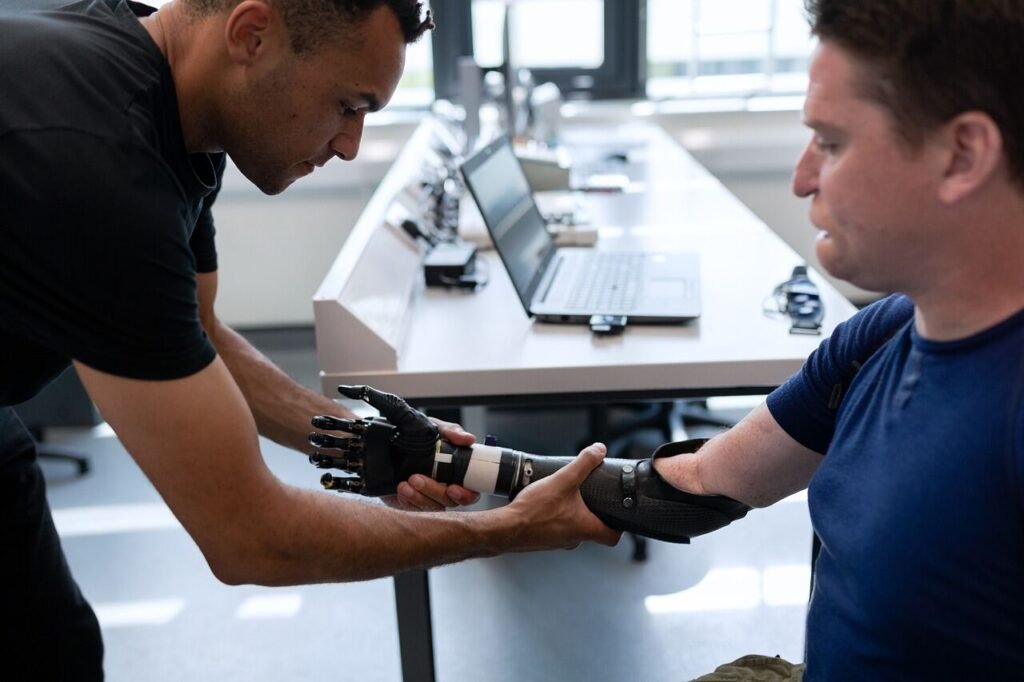
Most prosthetic clinics focus on the product—the limb itself. But in today’s world, where users are more informed, selective, and vocal, that’s not enough.
Your real brand is the experience you offer from first touch to long-term support.
Start by mapping every user interaction—from the first phone call, WhatsApp inquiry, or hospital referral—to the follow-up months after fitting. Identify friction points: where do users get confused, delayed, or drop off?
Then, improve these moments deliberately.
For example, if you notice many users forget their rehab schedules, implement a simple SMS reminder system. If they ask the same socket fit questions, shoot a quick video guide in your local language. These small touches multiply trust.
Delivering a great experience doesn’t always mean big investments. It means noticing pain points and solving them before users ask.
Build a Multidisciplinary Team – Not Just Technicians
A world-class clinic doesn’t rely on one expert. It runs on coordination between several specialists: prosthetists, therapists, biomedical engineers, mental health professionals, and user support staff.
If your clinic currently has just a prosthetist and admin, think about expanding slowly. Partner with a freelance physio. Train your receptionist to handle basic follow-up calls. Bring in a peer mentor once a month for new user orientation.
You don’t need a big staff to provide multidisciplinary care—you just need a mindset that goes beyond fitting devices and starts building people up.
This approach also improves user retention. People don’t switch clinics when they feel emotionally connected and well-supported.
Create a Signature Rehab Protocol for Your Clinic
Many users struggle after receiving their prosthetic—not because the device is bad, but because they don’t know how to use it confidently.
This is where rehab plays a major role.
Instead of relying only on the device manufacturer’s guidelines, create a signature training flow that reflects your clinic’s values, your region’s lifestyle, and your users’ day-to-day needs.
For example, if you serve agricultural workers, focus on holding tools, lifting loads, or navigating uneven terrain. If your clients are students or young professionals, include keyboard use, bag lifting, or bike control.
Break this protocol into three phases: early confidence (1–2 weeks), functional mastery (1–2 months), and lifestyle adaptation (3+ months).
Having a clear plan not only improves user outcomes—it sets your clinic apart as a serious, structured provider.
Leverage Hybrid Care to Serve Wider Areas
Don’t limit your business to clinic footfalls alone. With growing demand in tier-2 and tier-3 cities, hybrid care can be your growth engine.
Start offering online check-ins for socket issues, posture guidance, or myoelectric signal feedback. Provide WhatsApp-based tracking for remote users. Offer monthly group video calls with your prosthetist for follow-up queries.
Once users know they don’t need to travel to get support, they’re more likely to choose your clinic—even if it’s in another city.
You can also partner with small hospitals or physio centers in rural areas. Offer them digital training and let them act as your local outreach point. This builds trust across geographies without heavy investment.
Hybrid care isn’t just a COVID-era solution—it’s smart business strategy now.
Make Referrals Easy and Rewarding for Partner Doctors
Many potential users come through orthopaedic surgeons, trauma doctors, and physiotherapists. But these professionals are often unsure which clinic to trust or what options to recommend.
Make it easy for them.
Create a one-page referral guide that explains your services, price ranges, fitting timeline, and who to contact. Offer referral feedback so doctors know their patients were treated well. And host quarterly webinars or in-person sessions to update them on new tech and success stories.
You don’t need to “sell” anything. Just educate, build trust, and keep the lines open. Doctors value reliable partners who make them look good in front of patients.
This also positions your clinic as a center of excellence in your region.
Track Satisfaction and Turn It Into Your Growth Engine
If you’re not already measuring user satisfaction, start now. A simple three-question feedback form after each visit or tele-call can give you huge insight.
Ask: Were your questions answered clearly? Did you feel heard and respected? Would you recommend us to someone else?
Over time, this data shows what’s working—and what needs work.
You can use positive feedback in your marketing (with permission). Turn constructive criticism into service upgrades. And most importantly, you’ll show users you’re not just fitting limbs. You’re listening, evolving, and leading.
Trust grows when people feel seen.
Your Clinic Is More Than a Business—It’s a Community Anchor
Lastly, remember this: every prosthetic you fit is not just a product. It’s a turning point in someone’s life.
You’re helping someone return to work, raise their children, finish school, or simply feel whole again.
When you run your clinic with that purpose at the core, everything else follows—better retention, stronger word of mouth, deeper partnerships, and long-term sustainability.
You don’t need to be the biggest clinic in India. You just need to be the most caring one in your city.
Final Thoughts: Your Clinic Should Feel Like a Partner
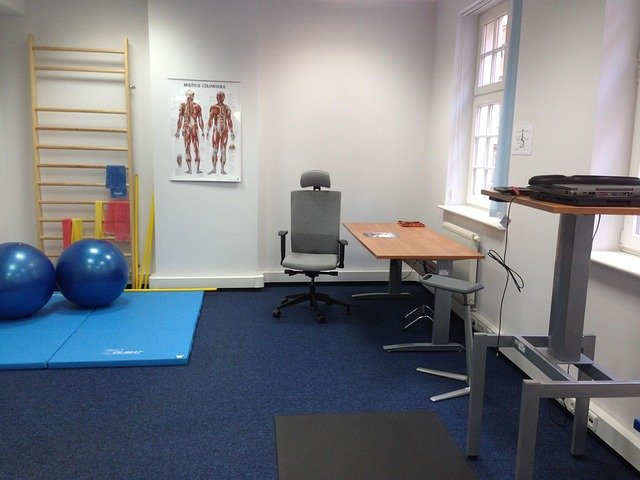
Choosing a prosthetic clinic is not about ticking boxes. It’s about finding a place that treats you with care, listens with patience, and supports your life goals with real solutions.
You deserve a team that walks beside you—not just during the fitting, but throughout your entire journey.
So take your time. Visit a few clinics. Ask questions. Trust your instincts. And remember, it’s not just about the device. It’s about the people behind it.
If you’re looking for a clinic that blends world-class technology with heart-first care, RoboBionics would be honoured to support your next step.
To book a free consultation or clinic visit, head to www.robobionics.in/bookdemo
We’re here when you’re ready—whether that’s today, next week, or whenever you decide it’s time.



